As a pool owner, one of the most annoying moments is walking to your pool and noticing your pump is off. The very first thing on your mind is, why did my pump motor stop working? There are several reasons why a pump motor might quit working. When and how you installed your motor will help determine what the issue is.
4 (Possible) Reasons Your Pump Motor Stopped Working
1. Your Pump Shaft Seal Failed
One of the most common reasons for pump motor failure is water damage. Inside your pump is a shaft seal. The shaft seal is a two-piece, spring-loaded seal that protects your motor from water damage. However, if this seal is compromised or if you install it incorrectly, water may get through and damage your motor.
If you are unaware that your shaft seal is leaking, it can possibly lead to corrosion along the front face of your motor and you don’t want that. Water damage is actually one of the few things the manufacturer checks when submitting your motor warranty. In my experience, water damage is the leading cause of denied warranties.
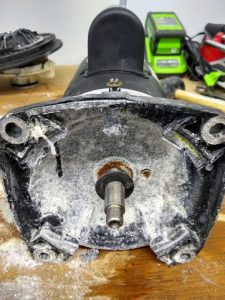
Example of Water Damage 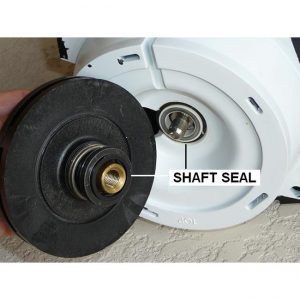
Where You Find The Seal
To protect your motor and preserve your warranty, we recommend replacing all of your seals, but especially the shaft seal, whenever you replace your motor. Also, if you notice that your pump is leaking, inspect it immediately. The longer you wait, the worse the leak will get.
2. Bad Capacitor
Buzzing Or Humming Noises
Have you ever tried turning on your pump but instead was met with a soft humming or buzzing noise? This noise will usually continue until it trips the breaker. In this case, the culprit is probably your capacitor.
The capacitor is a small part that looks similar to a battery. They are typically only good for around 5000 starts before they go bad. So, if you’ve had your motor for a long time and now it won’t start, the capacitor may be the issue.
Burnt Electrical Smell
In addition to a buzzing noise, another way to determine if the capacitor is bad is by using your sense of smell. If you start your pump and get a burnt electrical smell, your capacitor may be bad.
Only ONE Speed Works On a Two-Speed Motor
There are a few reasons why a pump motor will run on one speed and not the other. Yes, one reason is a bad run capacitor. If you replace the capacitor and it does not solve the issue, you will probably need to replace your motor.
Overheating
A defective run capacitor can cause the motor to run at a higher amperage, causing the motor to overheat. However, it’s not the only reason your motor may be overheating.
The surest way to determine if your capacitor is bad is by testing it, of course. Other causes of a pool motor overheating would be an oversized impeller, bad windings, or high voltage
3. Wired Motor Incorrectly
If you wire your motor incorrectly, the best-case scenario is it won’t start. The worst-case scenario is you ruin the motor. Hence why it is so important that you wire it correctly.
First, make sure your motor is set to the correct voltage BEFORE running the motor. Using the wrong voltage may result in motor failure. Next, ensure that your wires are placed in the proper positions. Please refer to the motor wiring diagram on the motor label.

4. Your Motor Is Dead
Before you go any further, ask yourself, “How long have I had my motor?” I’ll be honest, the life-span and longevity of pump motors have drastically decreased. Before, I used to run into pool owners who’ve been using the same motor for 5-10 years. Now, most pool owners get merely 1-5 years.
I’m uncertain if the quality of the motor has decreased or if environmental factors have played a role. However, if you’ve had your motor for a few years and it recently stopped working and none of the above solutions apply to you, you may just need to replace the motor.
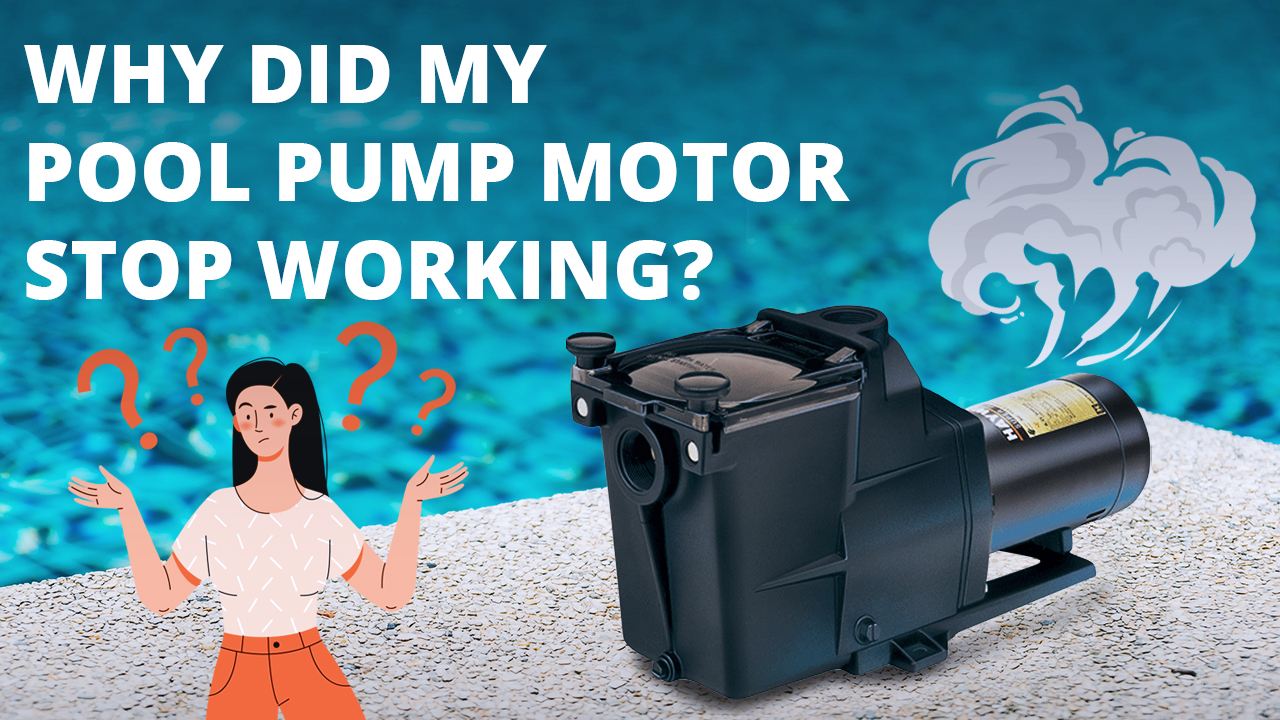
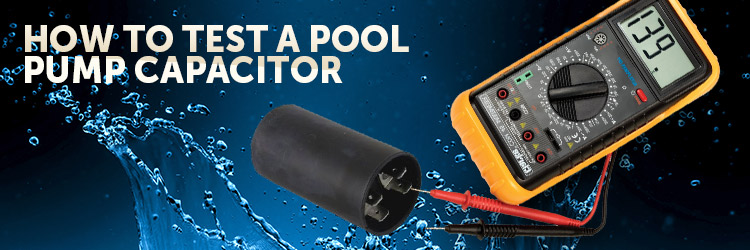
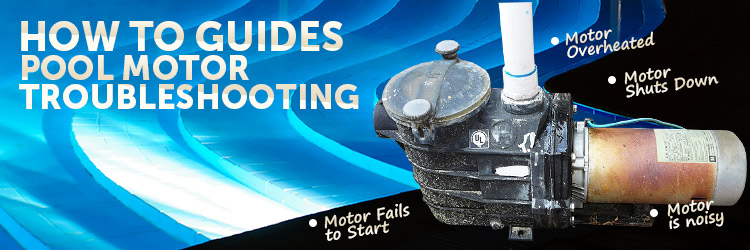
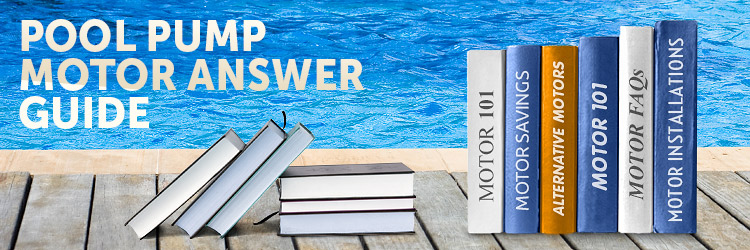
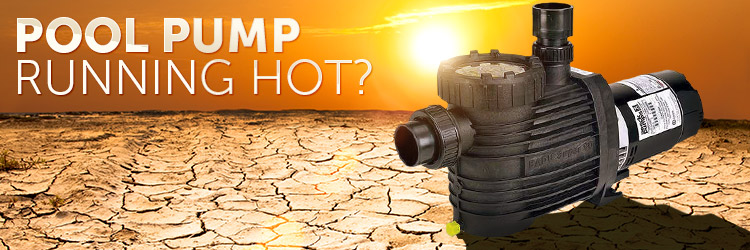
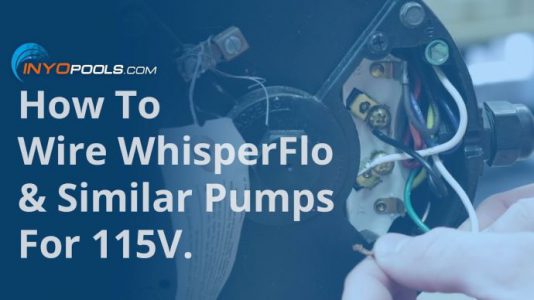






How about pump stopped working because every time it rains, the GFCI nuisance trips, and no one on Earth seems capable of diagnosing and fixing this glitch! And oh by the way the pool is only 3 years old. So consider carefully whether a pool is really worth it, with the stuff you have to deal with it constantly.
If you leave the pump outside all winter, then try to start it in the spring, often it is simply that the starter contactors that normally are ‘thrown into service’ by centrifugal force are ‘stuck’ to the surface they’ve been resting on all winter. Often a light tap or two on the end of the motor containing the contactors is sufficient to free them. (Tap immediately after turning on power. Shut power off immediately again, if you don’t get the motor running, or you may burn out stuff.
My pump motor will be a year old this 3/30/24. I started it up to keep the pollen from polluting my crystal clear water. The rear housing bearing it making so much noise you could hear it inside of the house. Of course the motor bearing can be changed, but its a lot of trouble for a motor that is not a year old. It has nothing to do with the front seal, but I still have to pull the motor and send pictures of the front face plate, so they can see that is not where the noise is coming from. A video would confirm that, but I will wait until all this rain stops, which gives me closer and closer to the time my warranty run out, so I can send picture of the wiring, name plate and any other small labels, and of course the front face plate where the pump actually hooks up to with the spring loaded shaft seal to keep the water out. Retired maintenance electrician and mechanic that has change more motors in my lifetime than they probably have on their shelf. Just glad I called to see how long the warranty was good for, and I come just under it expiring. Still have to pay a shipping fee, but better than the cost of a new motor,
getting tips and ideas about what might happen or is happening is always welcome. i enjoy reading these articles, even if i know the problem it helps to have a 2nd opinion.
If your motor is not protected from winter elements the contact points on the centrifugal switch that switch your motor from starting windings to running windings may need cleaned. Running it on starting windings will burn up the motor. You can tell by the click sound and motor speed on start up.
Motor shut down
Ok, did you try testing the capacitor, breaker, or anything else mentioned?